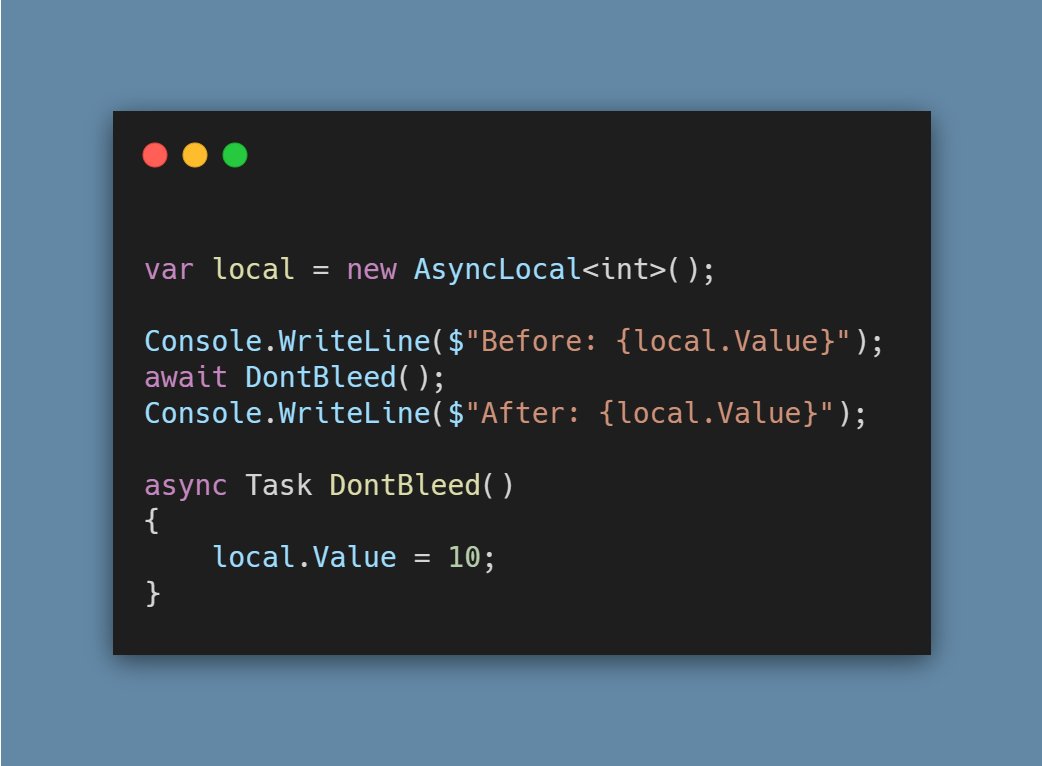Here's an interesting .NET-ism. Async methods capture the execution context on entry and restore them on exit. What does the following print? #dotnet #csharp 

It prints, Before: 0, After: 10. The async local value bled out of the method call because it was synchronous method that directly returned the task.
• • •
Missing some Tweet in this thread? You can try to
force a refresh


















